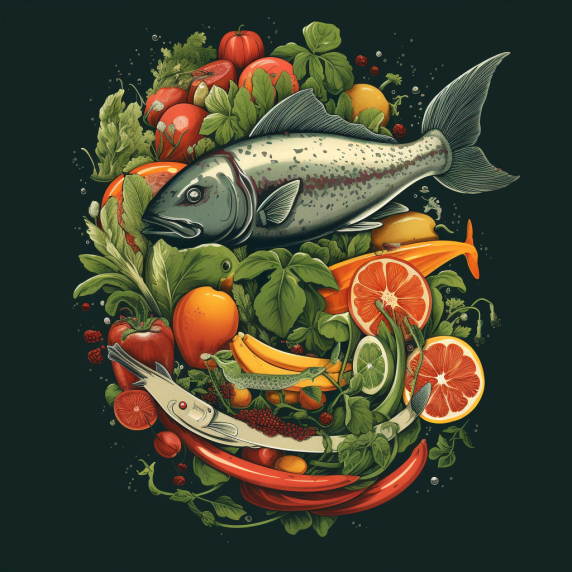The Standard American Diet (SAD) is a prevalent eating pattern in the United States, characterized by its heavy reliance on processed foods, unhealthy fats, and excessive sugars. Unfortunately, this dietary norm has been closely associated with a myriad of health concerns, including obesity, heart disease, diabetes, and cancer.
Processed foods, notorious for their artificial additives and poor nutrient profiles, play a central role in the SAD. Laden with empty calories, unhealthy fats, and added sugars, these convenient options often fall short in providing the essential nutrients our bodies need. Shifting away from processed foods towards whole, unprocessed alternatives can pave the way for a significant improvement in both our diet and overall well-being.
Unhealthy fats, such as saturated and trans fats, are alarmingly prevalent in the SAD and pose serious risks to our cardiovascular health. Found abundantly in processed meats, fried dishes, and full-fat dairy products, these fats contribute to heart disease, stroke, and other adverse health outcomes. Prioritizing lean protein sources and incorporating healthier fats from plant-based options like avocados and nuts can steer us towards a more heart-healthy and nourishing diet.
The SAD is also infamous for its excessive sugar consumption. Added sugars are lurking in numerous processed foods, beverages, and sweet treats, and their overconsumption can lead to weight gain, tooth decay, and an increased risk of chronic diseases. By reducing our intake of added sugars and embracing the natural sweetness of fruits, we can strike a better balance and support our overall health.
Embracing a healthier diet doesn’t have to be an overwhelming endeavor. Begin by incorporating an abundance of fruits and vegetables into your meals, as they are packed with essential vitamins, minerals, and fiber. Whole grains should also feature prominently, providing valuable nutrients and dietary fiber for improved digestive health. Selecting lean protein sources, including poultry, fish, legumes, and tofu, can help minimize the intake of unhealthy fats.
Reading food labels diligently is crucial to understanding the ingredients and nutritional content of the products we consume. Look for nutrient-dense foods that offer a wealth of beneficial substances relative to their calorie content. Remember, gradual changes are more sustainable than attempting drastic dietary transformations overnight. Take one step at a time, allowing yourself to adjust and savor the progress along the way.
Building a support system can be immensely helpful in maintaining motivation and accountability. Seek out like-minded friends or family members who share similar health goals, and explore online communities and resources that provide guidance and inspiration for healthier eating.
By improving your diet and making informed choices, you can significantly reduce the risk of chronic diseases and enhance your overall well-being. Small, consistent changes have the power to yield remarkable results. Start incorporating nutritious foods into your daily routine, and unlock the full potential of a healthier, more vibrant life.






